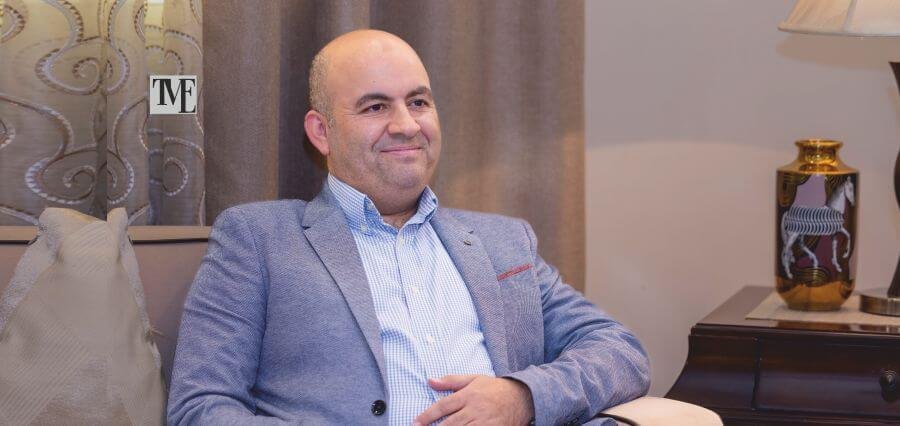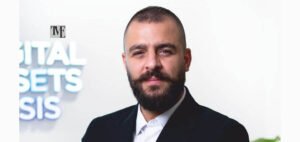In today’s hyper-connected world, digital transformation is often portrayed as a race to adopt the latest technology or harness the most sophisticated data. Yet, the most profound and lasting changes are not driven by tools alone, but by the people who wield them. At the intersection of data, innovation, and human aspiration stands a leader whose approach has redefined what it means to drive transformation in the modern era.
The People Factor in Digital Change
Alaa Sharaf‘s own path as a data analytics and digital transformation leader is defined by one steadfast belief: technology can only be as strong as the human beings who welcome it. Sharaf’s background in guiding complex, high-risk projects throughout the Middle East has shown him that the biggest challenge is not implementing new systems, but motivating people to change with them.
For Alaa Sharaf, change is all about the human experience. He feels that though technology and platforms are crucial, it’s the attitudes and resilience of individuals that define whether an initiative will be a success or not. “The journey of transformation isn’t about technology; it’s about people,” he ponders. This is the bedrock of his leadership approach, with listening, transparency, and inclusiveness at its core.
Sharaf insists change can never be imposed; instead, it needs to be nurtured in a setting where people feel encouraged to develop. He takes the time to clarify the reasoning behind each adjustment so that no one feels left behind. By building trust and communicating a distinct vision, Alaa Sharaf makes resistance shrink and the transformation process more manageable for everyone.
This style has been particularly successful in cultures where change is viewed as threatening or fearful. Sharaf’s knack for sharing openly, listening to concerns, and finding common ground has allowed teams to proceed with assurance, even amidst doubt. His leadership is not one of direction by dictate, but of inducing faith in a common destiny.
From Raw Data to Real Value
Turning Information into Insight
The contemporary organization is flooded with information, yet as Alaa Sharaf notes, “Data can be overwhelming in volume, but underwhelming in impact.” To him, the real worth of information is not in quantity, but in its power to enable significant decisions and propel business success.
Sharaf’s data-analytics philosophy is founded on simplicity and intent. Each project starts with a basic, straightforward question: What are we actually trying to do? Through backward thinking from clearly articulated business goals, Alaa Sharaf and his teams can find, cleanse, and correlate appropriate data sets. He compares the process to telling stories—reducing complicated information to actionable, relevant stories.
He encourages his peers to pay attention to patterns that matter, to eliminate noise, and to always bridge insights to business objectives. For Alaa Sharaf, visualizations and dashboards are useful only when they provide clarity and enable decision-makers to make informed decisions with confidence.
Sharaf’s dedication to practical insights has resulted in tangible benefits for his clients. Through turning raw data into concise, business-focused narratives, he has helped organizations fine-tune operations, capture new possibilities, and better respond to challenges. His approach is straightforward: data is only good as the choices it informs.
Analytical Precision Meets Empathetic Leadership
Client-First, Always
Sharaf’s leadership is frequently characterized as an unusual mix of analytical acumen and empathetic involvement. He prefers to define this style as “client-first,” putting clients’ needs and aspirations at the forefront of all initiatives.
“Being analytical informs you about what is occurring, but empathy informs you why it matters,” Sharaf says. He feels that even the most advanced data is useless if it is not for the benefit of the people and organizations it is meant to support. By taking the time to find out what drives every individual and organization, Alaa Sharaf makes sure that each data journey is geared towards their specific objectives and challenges.
This philosophy is applied to his teams as well. Sharaf doesn’t just view people as resources, but as individuals with hopes, issues, and performance metrics to achieve. He advises the leaders to tie all activity to these individual and company objectives, building a culture of respect and purpose.
Empathy is not a soft skill for Alaa Sharaf but a strategic one. Through it, he can foresee impediments, grasp resistance, and create solutions that connect with stakeholders at all levels. His client-centricity has brought him enduring partnerships and the reputation for not only achieving results, but delivering value that lasts.
Guiding Innovation Without Overwhelm
Balancing Progress and Perspective
The constant pace of technology advancement is liable to overwhelm even the most able group. Sharaf understands this vulnerability too well and has devised means to shield focus and offer the space necessary for thinking and prioritizing.
He acts as a guardian, grounding innovation in a clear sense of direction and always linking new projects to the challenges they are designed to address. Alaa Sharaf is a firm believer in providing space for people to innovate and experiment but also making them feel secure and protected. If guidance is steady and vision is certain, teams have the freedom to innovate without deviating from their fundamental goals.
Respecting differing opinions is at the heart of Sharaf’s leadership. He respects open communication, urges respectful disagreement, and listens intently to clients’, partners’, and team members’ ideas. Through intentional guidance and working together, Alaa Sharaf creates a culture where achieving together is not just feasible but imminent.
Sharaf’s skill at balancing ambition and empathy has enabled his teams to excel in high-velocity environments. He recognizes that innovation comes from the interplay of discipline and freedom—discipline to maintain strategic focus, and freedom to test, learn, and evolve. Such harmony has become the signature of Alaa Sharaf’s leadership, sustaining momentum without exhaustion.
A Case Study in Transformation: Breaking Down Silos
Uniting Teams for Greater Impact
Sharaf’s most notable recent project involved guiding a large enterprise through a multifaceted data transformation. The mission was to bring together disparate data teams—each with their own culture and way of doing things—into one integrated, collaborative environment.
The technical issues were significant, but Alaa Sharaf knew that the biggest barrier was cultural. Members of the team defended their territories, and others were traditional in their practices. Through gradual change management and an emphasis on common objectives, Sharaf directed the organization from a siloed environment towards a cohesive, accessible data environment.
The outcome was not only a technological transformation but also a cultural one. Those teams that previously worked in a siloed way started to work together in real time, sharing information, and providing more value. The company transitioned from disparate data strategies to one repository, maintaining privacy and security while optimizing productivity.
This revolution empowered the company to address mission-critical issues with unwavering speed and efficiency. Alaa Sharaf’s culture of collaboration continues to fuel innovation and success, demonstrating that the greatest innovations are achieved when technology and human beings march ahead together.
Sharaf’s efforts in dismantling silos have also had a significant effect on organizational morale. By establishing a culture in which collaboration is not only feasible but facilitated, he has helped to restore a sense of belonging and purpose to teams. The success of the program is a testament to Sharaf’s conviction that technology is only as powerful as its ability to unite people.
Evolving Leadership: From Tools to People and Processes
A Maturing View
Sharaf’s view of leadership has come a long way since he first started his career. In his early days, the emphasis was on technology and tools. Now, he realizes that effective transformation can take place only by adopting a well-rounded approach—one that engages people, processes, and technology.
He has grown more attuned to the reality that each transformation journey starts with people. A change in mindset is needed, without which technological investment will never translate into results. Just as necessary is process optimization and redesign for enabling new ways of working.
Sharaf’s leadership maturity is seen through his appreciation of this trinity: people, processes, and technology. He feels that to abandon any one of these components risks the entire transformation. Having the correct technology partner is important, but without people support and proper processes, organizations will not be able to achieve their goals.
Sharaf’s development as a leader has been influenced also by his openness to learning from experience. He is willing to own up to errors, change course in light of new information, and consider different points of view. This attitude towards growth has helped him remain ahead of the curve in industry trends and have a future-oriented perspective on leadership.
Ethics at the Core: Responsible Technology Leadership
Fostering a Culture of Integrity
While technology continues to grow stronger and more accessible, Sharaf has a deep dedication to seeing it utilized ethically. The advent of generative AI and other sophisticated tools promises great benefit, but also poses great danger. Alaa Sharaf is convinced that ethics should be the foundation of each technological effort.
He nurtures an ecosystem in which ethics and governance are inherent from day one. All projects start with hard questions: Is this ethical? Are we adhering to the highest code of ethics? Is the technology transparent and not biased? Sharaf is keen on precluding abuse and making sure that technology is contributing to the good of society.
Through ethics as a priority, Alaa Sharaf guards not just his organization and customers but also the larger objective of ethical innovation in the country and across the world.
Alaa Sharaf’s ethical leadership goes beyond adherence. He deliberately advocates for openness, responsibility, and equity in all facets of work. By establishing high expectations and leading from the front, Alaa Sharaf motivates others to act responsibly and with integrity.
Legacy and Vision: Shaping the Future of Digital Transformation
Inspiring the Next Generation
Sharaf’s influence reaches far beyond his initiatives. His aim is to set the path for the next generation of workers, making their work more efficient, productive, and purposeful. By grounding innovation in purpose, collaboration, and the highest principles of ethics, Alaa Sharaf is creating a future where technology enables individuals and organizations to achieve their full potential.
He continues to serve as a mentor and role model to those who are around him, inspiring exploration, experimentation, and ongoing learning. Alaa Sharaf’s leadership is not only what he does, but how he helps others to grow and thrive.
Sharaf’s legacy is one of empowerment and potential. In his view, the greatest indicator of leadership is not how much praise goes to the leader, but how much success and development goes to the people they serve. By betting on people, advocating for virtuous innovation, and establishing collaboration cultures, Sharaf is building a future where humans are served by technology, and not the reverse.
The Human Face of Digital Progress
Sharaf embodies the characteristics of a modern technology leader—analytical but compassionate, visionary but pragmatic, innovative but responsible. His tale is a testament to the fact that behind every successful transformation stand people: their attitudes, their ambitions, and their openness to change.
In a world where technology is all too often the star of the show, Alaa Sharaf reminds us where the real story is. Through his work, not only are organizations implementing new technology, but they are also transforming into more collaborative, ethical, and human-driven businesses. As the digital world keeps developing, Sharaf is a shining example of what happens when technology and humanity move hand in hand.





